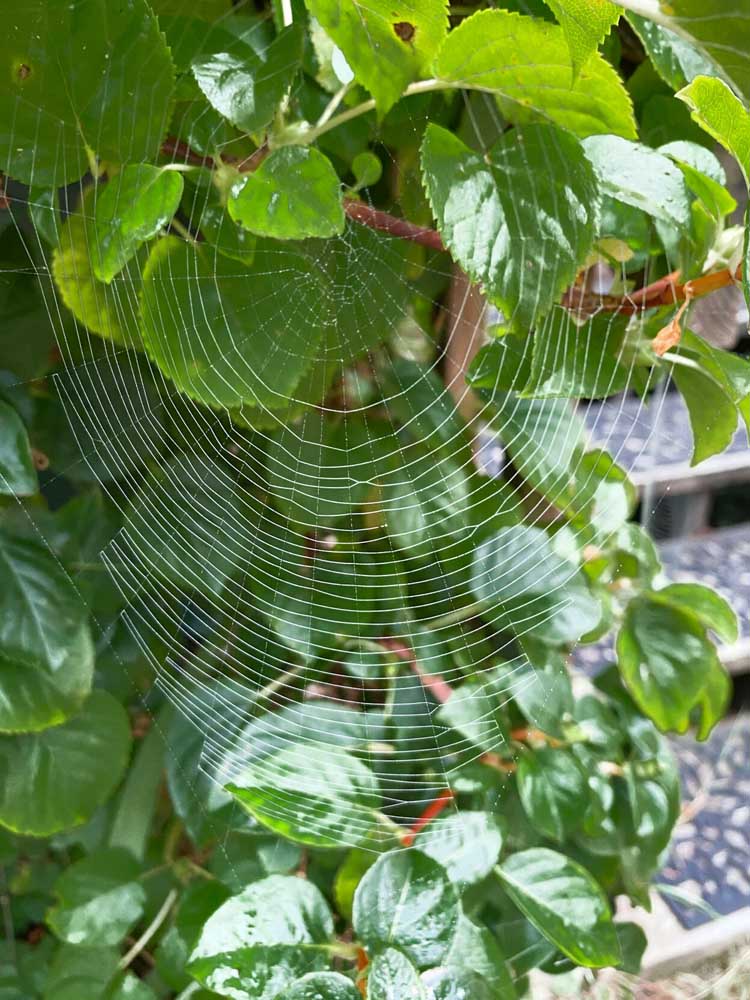Writer’s Notebook: It’s spidertime on Washington’s coast
Published 12:30 am Thursday, September 12, 2024

- Orbweaver spiders are hard at work making big circular webs of engineering wonder.
“Spidertime” would be a good name for fall on the Washington state coast — they are everywhere, scurrying along indoor baseboards and web-building across any outside opening where flying insects might pass.
Trending
I regret, slightly, evicting half a dozen giant house spiders so far — they freak out my wife. Big around as a drinking glass and fast as startled house mice, they even unnerve me — and I’m a spider fan, dating back to at least age 8 when grandaunt Lillian Clark gave me “Charlotte’s Web.”
I hate to break a web or otherwise inconvenience a spider — partly due to good manners, but also since I hew pretty closely to my grandparents’ superstitions. They believed, “If you wish to thrive, let the spider go alive.” Or, more philosophically, “Never kill a spider; there is room in the world for us and it.” I’ll save any spider I can, figuring the next life spared just might be my own.
Harmless but intimidating giant house spiders routinely fall victim to our house’s daddy longlegs, who hunt and eat them when not engaging in gladiatorial battles with one another. Some corners of our basement are colonized by these delicate spiders sitting motionless for weeks in hopes of an insect or spider meal. Their Zen-like calm might deceive us into thinking they have starved to death, but if a human taps their web or a nearby surface, they begin gyrating like a stereo speaker playing Black Sabbath. As Portland State University helpfully explains, “They vibrate their webs rapidly when they sense danger (such as when a person approaches them quickly); this vibration obscures their exact location in the web.”
Trending
My efficient but oh-so-noisy Husqvarna weed wacker wreaks gasoline-powered apocalypse on innocent grass-dwellers, including the spiders underfoot. Eying my yard, our neighbors will testify I use it sparingly. Among the things stashed in Grandma’s lichen-splashed outhouse back by their farm’s irrigation ditch were old-fashioned grass shears, the kind cast and forged from a single piece of iron that operate like the spring-grip wrist exercisers favored by athletes. They made a satisfying metallic ringing sound opening and closing on backyard thistles, and didn’t chop up everything in their path. Thinking of them brings back the sweet aroma of fresh-cut grass and memories of daddy-longlegs dangling in the dusty shadows, perhaps thinking deep thoughts.
Grandpa’s word for outhouse was “netty,” from the nearly forgotten dialect of his parents’ home county in northeast England. As a kid, I figured netty must have come from a bygone time when they strung nets below the hole to keep little boys from falling in or perhaps to keep spiders from crawling out. In either case, a net would have aided my peace of mind.
Garden orbweavers — there are about 3,000 species around the world — in this area reach their maximum size in September and October before laying their egg sacks. In a last dash toward procreation, they spin classic webs of awesome architectural simplicity. These are so often at face-height along human footpaths that I sometimes wonder if they may be practical jokers. But no, their webs are a lot of labor:
“Many orb weavers build a new web every single day. At nightfall they consume their web, rest for a short while, and then rebuild a new one. This is why we see so many fresh webs every morning,” according to Pacific Science Center in Seattle.
We share our world with uncountable legions of helpful and underappreciated spiders. They deserve our respect, and the courtesy of detouring around their homes whenever we can. Soon, wild North Pacific storms will be trying to squish us all. A little spider karma will do us no harm.









